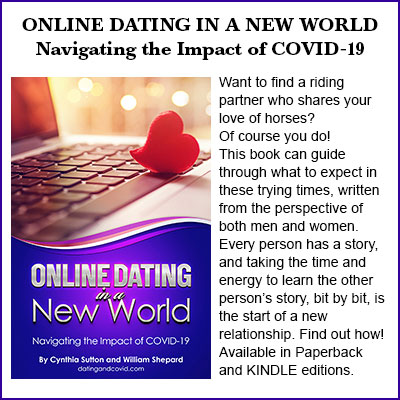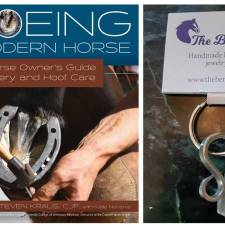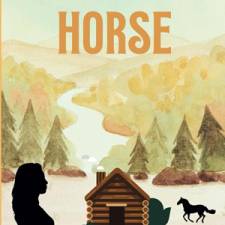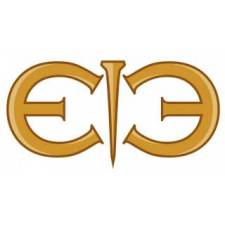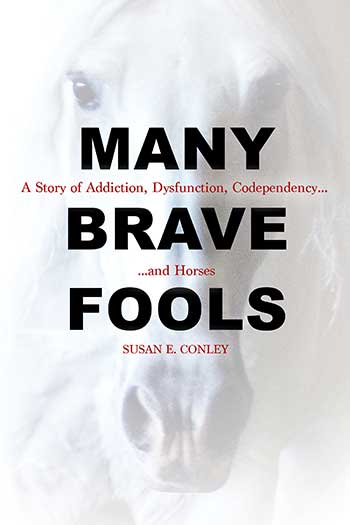
by Susan E. Conley
The majority of equine literature takes great pains right from the get-go to explain the nature of the horse as a herd animal, and that in order to enter into the correct human-horse relationship, we must be the leaders. Many books say that this is where women fall down. Professional relaters from birth, we have no difficulty with the bonding part, the grooming and the treating and the whispering. Where we stumble is in the attitude of power: We want the horse to do what we want the horse to do, but what do we do when the horse won’t do it?
I can be wishy-washy in leadership scenarios. I was, very much so, with a mare called Delilah, albeit in a grumpy, sulky way. I figured that she knew more than I did about this horseback-riding caper, since she was a horse and had been ridden for years, but it wasn’t her job to be the creature ridden and the creature running the ride. Delilah would only do what I told her to do. The whole point of riding is to work with the horse to achieve a goal, not just sit there and hope she does the job for you.
Take Maverick, the fourth horse I was ever to ride in my life. Unlike any of my previous horses, he seemed perfectly content to engage in a power struggle, lesson after lesson after lesson. And I showed up for it every time. Even when I had four horses I could choose from, I routinely went back to him, and I’d be surprised when I found we hadn’t made much progress. This was especially frustrating, because when we had a good hour, it was a really good hour.
Maverick was gorgeous, and people who didn’t know better, like parents of new kids, sometimes thought he was my horse. They would come over to tell me how handsome he was, and sometimes I’d pretend that he was mine, and I’d smile and nod, and walk away with him at my side, slowly, laconically, like a real horseperson.
But then there were the days when he wouldn’t let me bridle him, where I’d put the reins over his neck, the whole shebang shaken out so everything—noseband, throatlatch, browband—was going in the right direction as I held the cheek pieces in the correct place and tried not to worry (much) about sliding the bit into his mouth. All that would be fine. But then there was the part where I had to get the top loop of the headstall over one of his ears, then the other. For Maverick, both ears were a battleground, and he’d throw his head, and I’d dance in place, feeling like my arms were about to be dislocated from my shoulders. It was war, every single time.
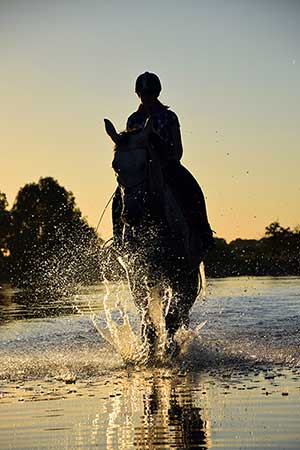
In winter, he’d be fizzy because it was cold out. In spring, he was fresh because the weather was warming…. No one at the barn paid me any mind when I vented about the gelding. They probably just wondered why I made myself crazy trying to ride him. No, I thought, one day it would be perfect and I would have mastered this riding-Maverick thing, and I was not giving up. He pushed me, and in turn I pushed myself, and that was good, because I was learning…right?
That’s perfectly correct—except when it’s not.
Another salient point that equine literature gets across, it’s that horses are sentient biofeedback machines. They only give back what they receive. So, when I was getting more and more frustrated with Delilah, it could be argued that, as I went farther and farther down my I-suck-at-this rabbit hole, she simply responded to that information, and provided me with ample fuel for the fire. And if Maverick showed up, girded and ready for battle, whose fault was it that I kept choosing to engage?
Right, so. In order not to drive my mount demented, I had to:
1) Establish boundaries.
2) Be assertive.
3) But also be patient (with myself and them).
4) Pay attention!
5) Work through difficulties and power struggles.
6) Admit when I’d been at fault.
7) Oh, and the physical stuff: Get a stronger leg and better balance and timing.
Each of these things, every single one (well, maybe not number 7), was something I could stand to do better in my life “on the ground,” much less in the saddle, and definitely could have improved upon in my erstwhile marriage. Did I think that relating to a horse was going to be easier than relating to a human?
I did. I did think that.
I must have been nuts.
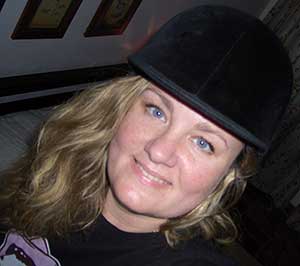
This excerpt from Many Brave Fools by Susan E. Conley was adapted and reprinted with permission from Trafalgar Square Books (www.HorseandRiderBooks.com). Find this book and others in our section on Books.






